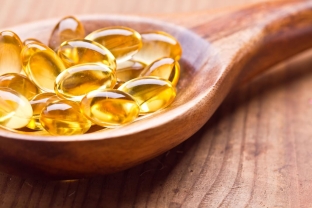Eczema – a very unpleasant chronic disease characterized by inflammation of the skin. Numerous papules, similar to vesicles, appear on its surface layers. The disease is accompanied by itching, it can occur with relapses. Previously, this disease was called wet lichen. In the world, eczema affects up to 10% of the population. Numerous studies show that the disease, in particular, arises from a lack of essential fatty acids in the body. And as it turns out, dietary modification and a range of other measures can affect the treatment of eczema.
About the queen of fats and not only
In fact, fatty acids have a very positive effect on the course of the anti-inflammatory process in eczema. They remove both visible inflammation of the skin and invisible foci of inflammation inside the body. But first you need to understand that not all fats are healthy. For example, harmful cooking fats, inexpensive vegetable oils, and other unnatural fats should be completely avoided.
But the one thing without which you can’t help the body get out of this disease is Omega-3 fatty acids. Polyunsaturated fatty acids are found in a large number of products: in fish – halibut, mackerel, salmon, tuna, trout; cod liver, walnuts, olives, avocados, seeds.
However, the products listed above – it is not the only source of Omega-3 replenishment. You can also enrich your body with fatty acids with the help of supplements, for example, it can be fish oil in capsules. It is possible to use this unique natural substance in liquid form, in particular, it is good to add it to vegetable cocktails: it will be enough to take in the range from 2000 to 4000 mg per day.
Indispensable in the treatment of eczema can be considered such a component as gamma linolenic acid, which is also able to resist inflammation. It is found mainly in dairy products (especially cottage cheese), nuts, sunflower oil, seeds, and – in spring primrose and borage oil. Reception per day – a quarter dose of Omega-3.

Essential Fatty Acid Support Group & Minerals
In order for fatty acids to be fully absorbed, it is desirable to supplement them with fat-soluble vitamins A, D and K, and also vitamin E. All of the listed vitamins also contribute to the absorption of minerals. And those who suffer from eczema need the following minerals: sulfur, zinc, magnesium.
Sulfur is endowed with many possibilities, it is used for allergies, it helps to eliminate toxins from the body, with its "participation" binding of collagen fibers occurs, which gives the skin elasticity. In addition, sulfur heals wounds and scars.
Zinc also actively promotes wound healing, but also improves the absorption of gamma linolenic acid. In addition to the active inclusion of zinc-containing foods (beef, walnuts, beans, sunflower seeds) in the diet, it is also good to take preparations with this mineral.
Magnesium deficiency in the body today is experienced by many. And this mineral has a powerful anti-inflammatory effect, with its direct participation in our body, at least 200 different chemical reactions occur. It is good to take magnesium citrate 500 mg daily.
Useful supplements in the fight against eczema
Obviously, in everything related to the external treatment of this disease, a dermatologist will help you. We believe that after all it will not be creams based on hormones. But what the doctor must certainly mention is the therapeutic effect of coconut. It is available in different forms: as a cooking agent (oil), it can also be used as a drink, and it can also be applied to the skin. But if this "drug" is not available to you for any reason, then aloe – a well-known and accessible plant. All you need to do is apply fresh aloe vera jelly to eczema-damaged skin.
Estet-portal.com hopes that these recommendations will become your reliable guide in the treatment of eczema.








Add a comment